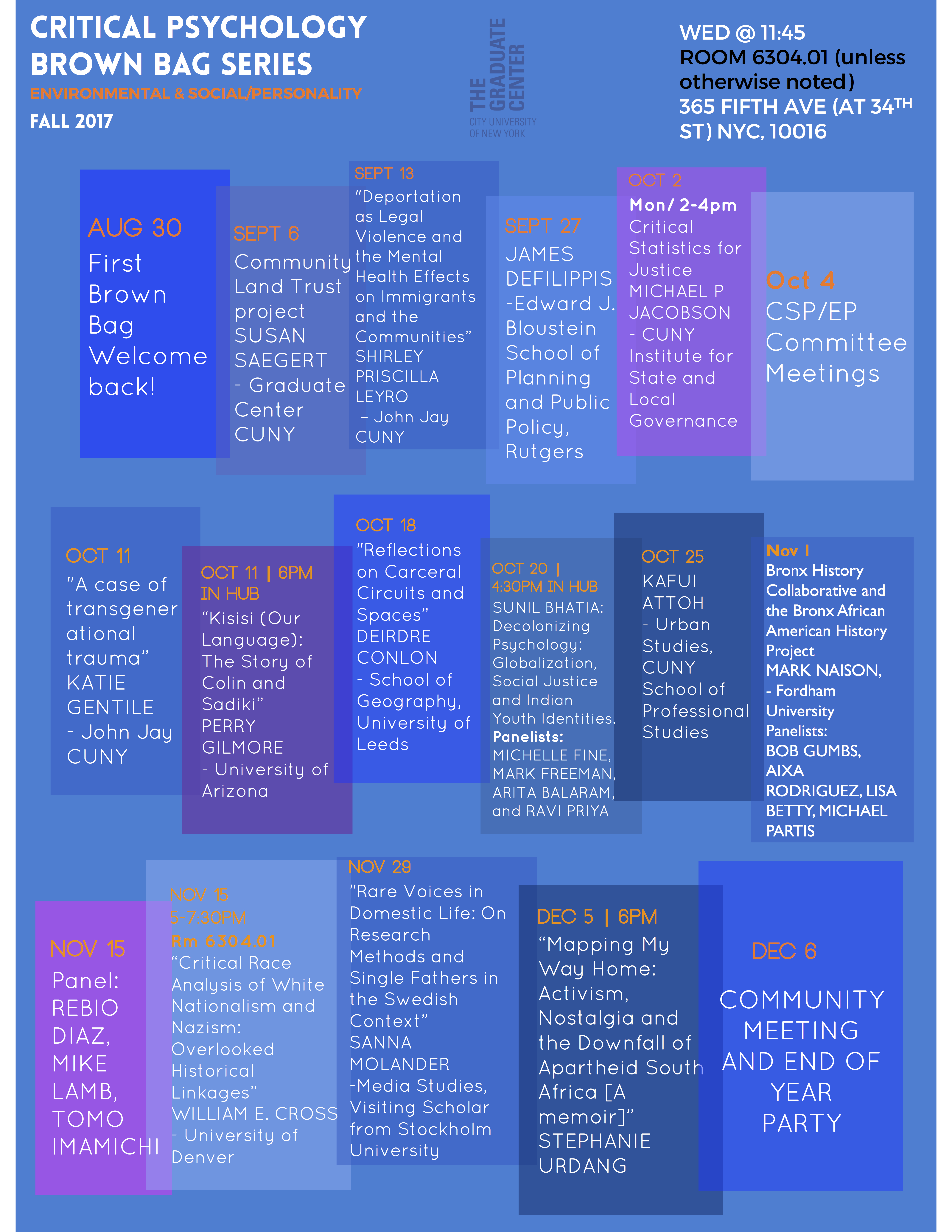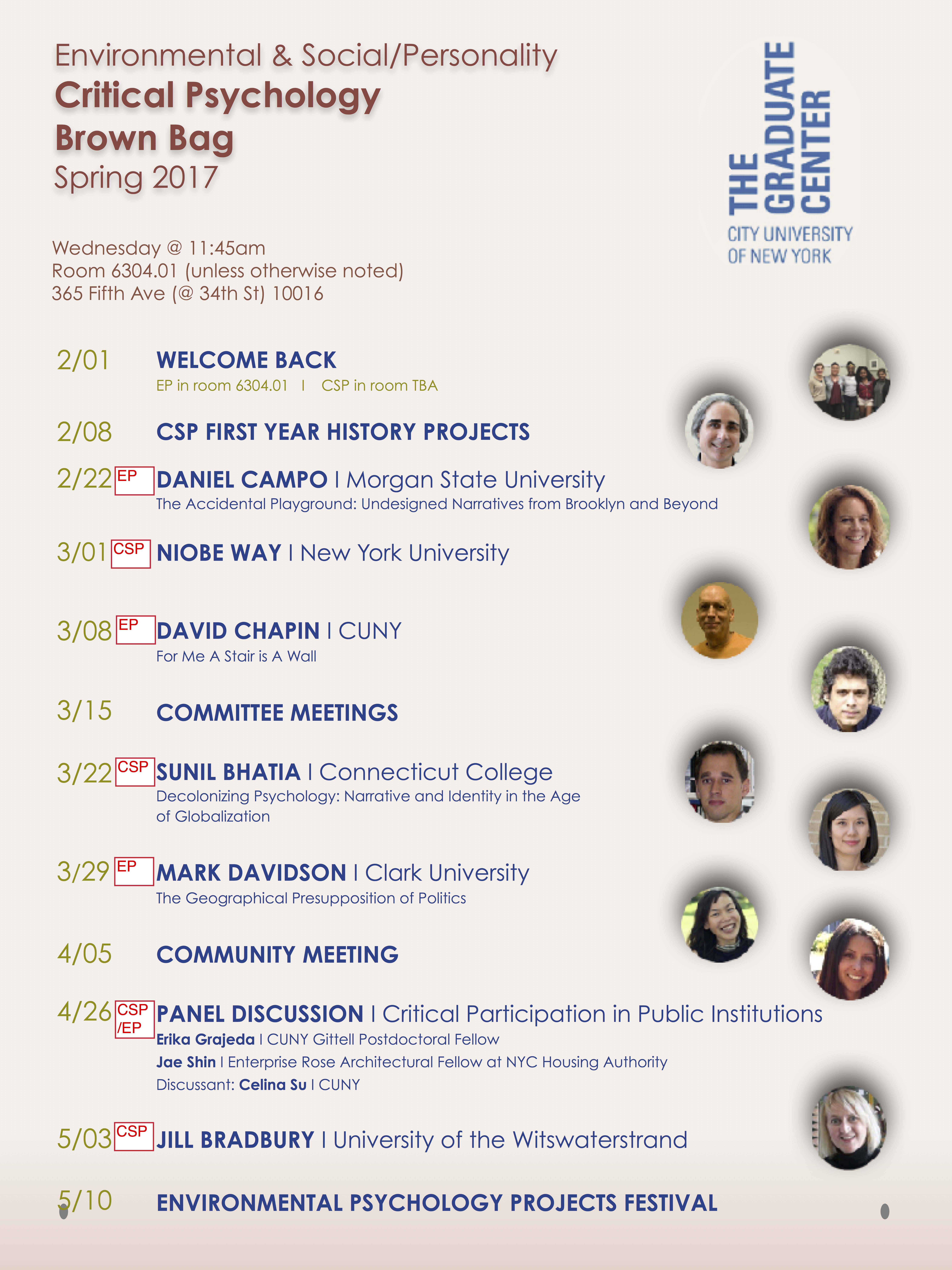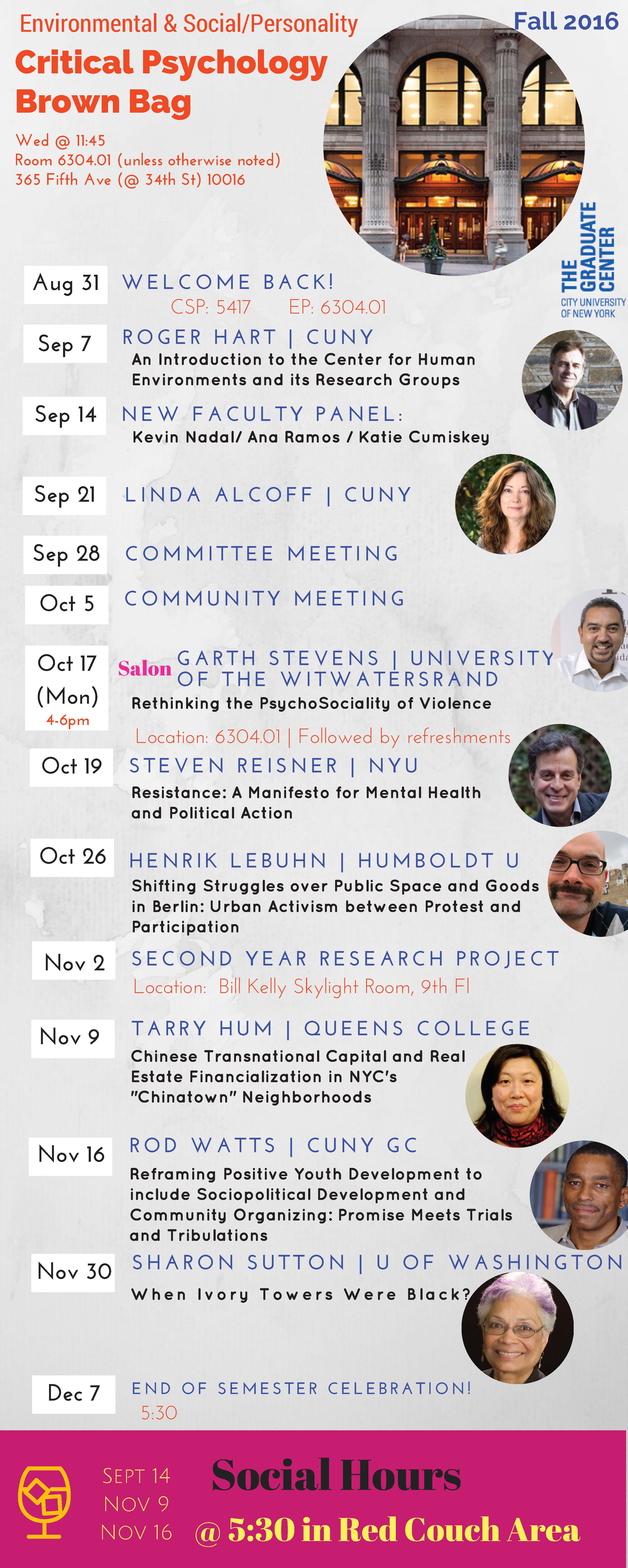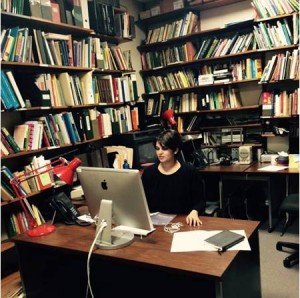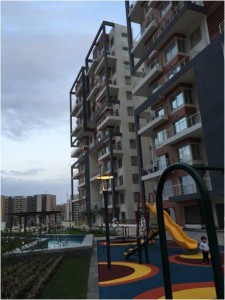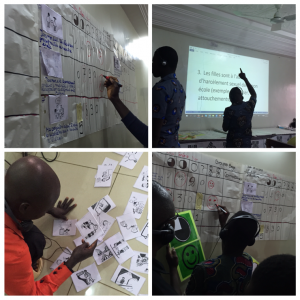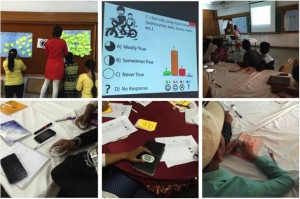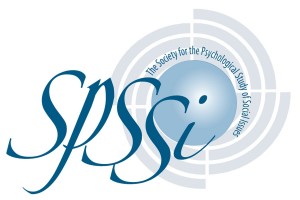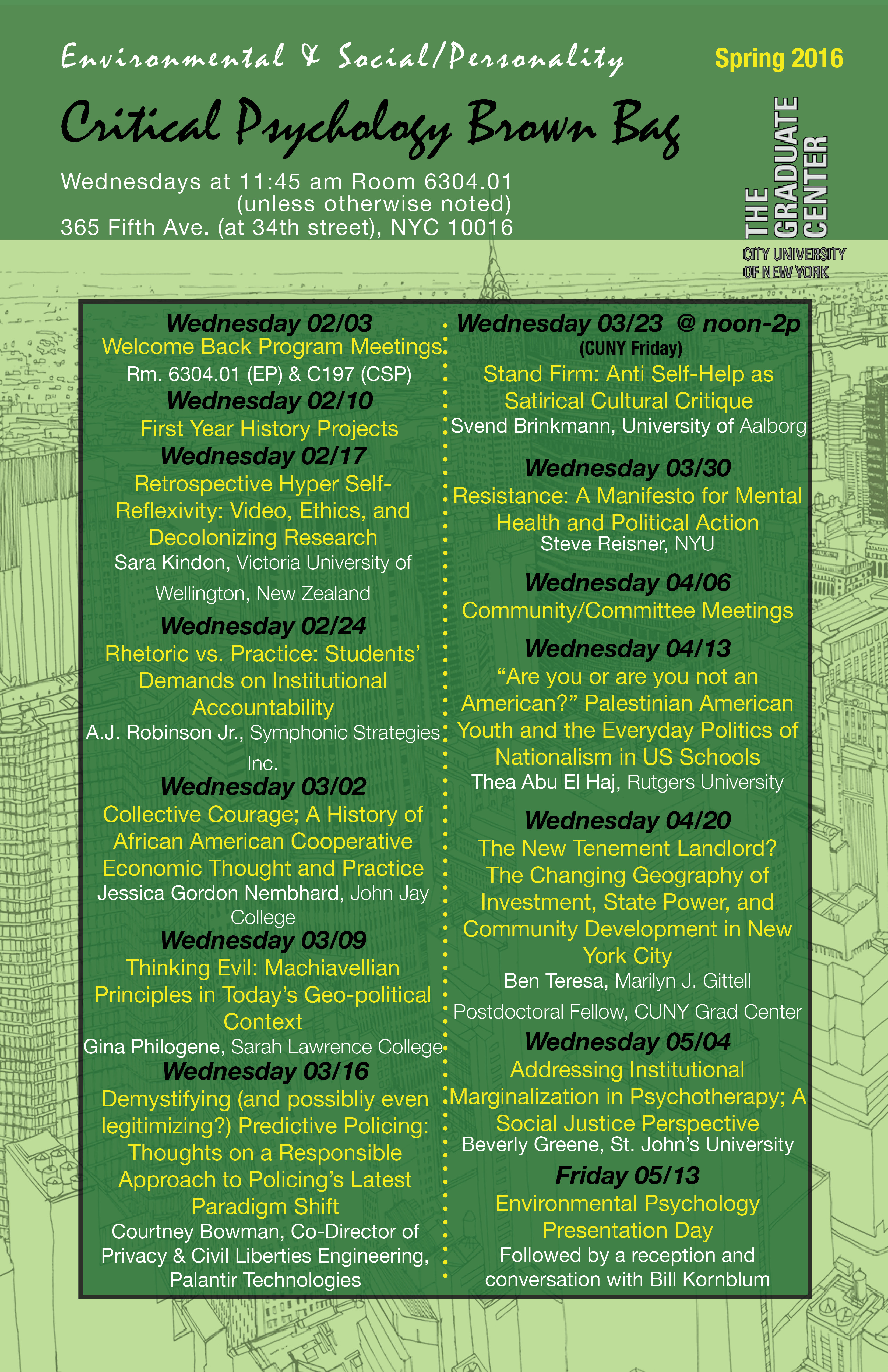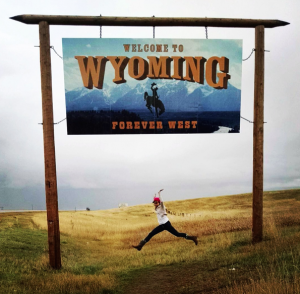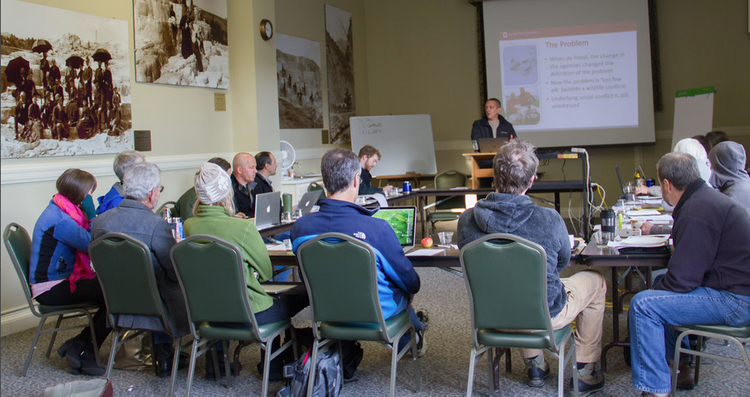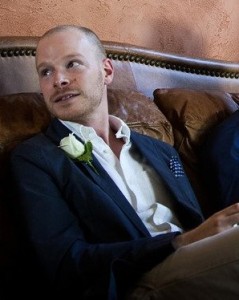
Sara Grant (left) and Evie Klein (middle) are presented with the Citation for Design Excellence by Jennifer Sage, the AIANY Vice President for Design Excellence.
On December 5th, the New York chapter of the American Institute of Architects (AIANY) conferred a Vice President’s Citation for Design Excellence on a collaborative research project between architects and social scientists currently underway at Medgar Evers College, CUNY.
The study is led by Evie Klein, Eleanor Luken, and Troy Simpson, who are current Environmental Psychology doctoral students and co-founders of the User Design Information Group (UDIG) at the Center for Human Environments (CHE) at the Graduate Center. The architects collaborating on the project are Sara Grant (partner at Murphy, Burnham & Buttrick) and Marta Sanders (partner at Architecture Outfit).
The Medgar Evers College Collaborative Research Project focuses on higher education spaces outside the classroom and on data collected via field research. The project is exploring how the design of campus spaces can support student-faculty relationships and student retention; ways of using social science methods to better understand the values and culture of higher education environments; and how such spaces contribute to advancing common goals of the campus community.
To link physical spaces and social transformation, the research team is taking several steps, including engaging students as researchers, undertaking ethnographic fieldwork, and making impact evaluations of the physical and procedural changes to the space associated with the study.
The AIANY citation was awarded to two committees of the AIANY who play key roles in the research project: the Social Science + Architecture Committee (SS+A), which Klein founded in 2016 with Melissa Marsh, and the Committee on Architecture for Education (CAE). The aim of the collaboration is to demonstrate that a design based on rigorous social science research methods can have a measurable impact on the social goals of an educational institution.
This project aligns with UDIG’s goal of connecting environmental psychology scholars with architects, planners, and communities to develop research that informs and promotes equitable design initiatives. On the Medgar Evers project, Klein, Luken, and Simpson are providing expertise in social science methodologies of data collection and analysis in coordination with the traditionally rigorous architectural methods of observation and problem solving through design.
The research team also includes two current Medgar Evers undergraduate students with support from campus faculty and senior administration staff.

